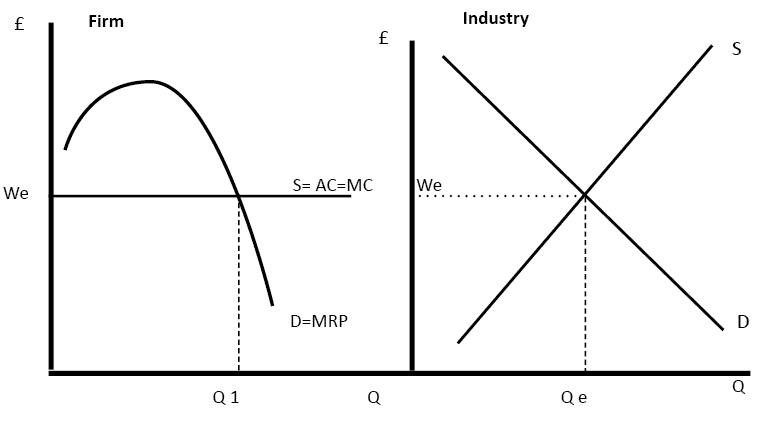Readers question: what are perfectly flexible wage?
Perfectly flexible wages are job contracts where the wage can frequently be changed. For example, if wages are determined by the income firms get – then wages are flexible – they directly change depending on price of goods. This means the wage a farm worker gets will vary from day to day. If the price of potatoes rises, so does the farmer.
Inflexible wages
Usually wages are set by contracts. For example, a worker may be entitled to £4.50 an hour. Usually these pay rates are reviewed every year – so there is inflexibility in between. These wages are not perfectly flexible because
- Workers are not paid their individual marginal revenue product (MRP). But, a standard wage rate
- Wages do not change very frequently. But, only at certain time periods.
Sticky/non-sticky wages
Sometimes wages are referred to as ‘sticky’ This means firms may have difficulty cutting wages of workers when demand falls. Firms may be reluctant to cut wages because it interferes with motivation and productivity.
Non-sticky wages mean they are flexible and can easily change.
Theory of wage determination and flexible wages
With perfectly flexible wages, the wage rate would always be set where MRP of labour = Marginal Cost.
Therefore, if a workers, marginal product increased, this would translate into a higher wage rate. This could be achieved through paying workers piecemeal for the amount they produce, e.g. £3 per cartoon of broccoli that you pick.
If there was an increase in supply of workers in the industry, this would push down wages in the industry, leading to an immediate decline in the wage of each worker. Usually this wouldn’t happen, because workers would resist nominal wage cuts, and firms may even be reluctant to cut wages because of impact on morale / costs of changing wages.
Related

